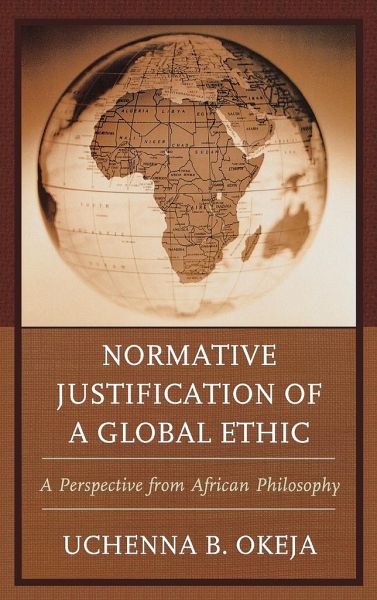
Normative Justification of a Global Ethic
A Perspective from African Philosophy
Versandkostenfrei!
Versandfertig in 1-2 Wochen
110,99 €
inkl. MwSt.
Weitere Ausgaben:

PAYBACK Punkte
55 °P sammeln!
The focus of this book is the normativity of global ethic. Over the years, different cultures and civilizations have been brought closer than never before by globalization. This trend has both its negative and positive dimensions. Overall, the main problem of this present trend of societal organization and human interaction called globalization is a moral issue, namely, the question: how should we treat one another? Okeja's global ethic seeks to answer this question. It underscores that we should treat one another in our current age of globalization in accordance with the Golden Rule principle. The suggestion of this ethic is therefore that we should not treat others the way we would not want to be treated. This sounds simple enough. The problem, however, is that it is not exactly clear what this principle of moral conduct would suggest in both simple and complex moral situations. Most importantly, it is not clear why it is reasonable to treat people the way we would not want to be treated. Why, in other words, should we act in accordance with the Golden Rule principle? What is the justification of the demand the Golden Rule makes on us? This book answers these and other questions about the normative plausibility of the Golden Rule, and thus global ethic, from the comparative perspective of ethics in African philosophy. It analyzes three stages of the possible normative justification of the moral imperative of global ethic and proposes a deliberative form of justification.
This book focuses on the normative questions raised by the postulation and declaration of a global ethic. Its scope covers the questions "why do we need a global ethic?", "what kind of global ethic do we need and what sort of normative justification does it imply?" The book considers the imperative of global ethic to be plausible because it demands consistency in the application of the rule or standard of moral behavior.













